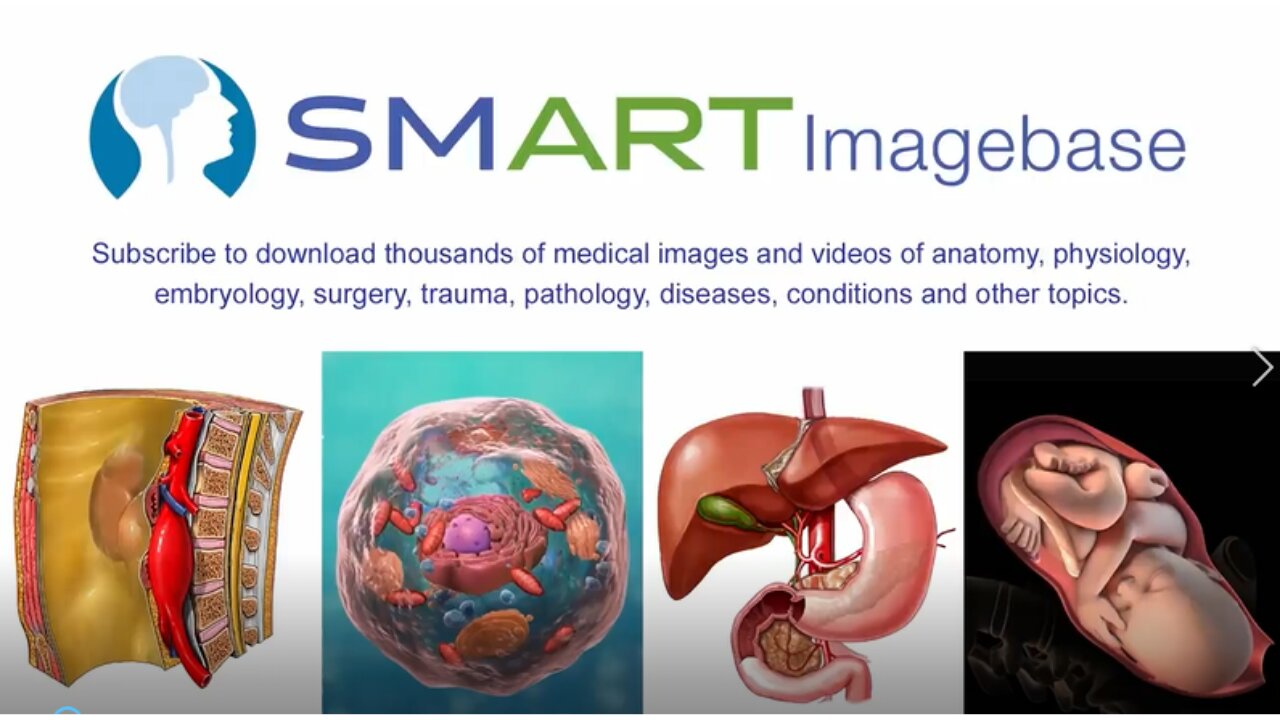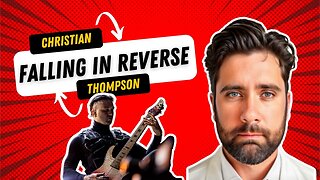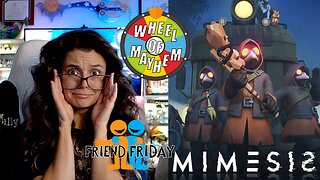Premium Only Content

What is a Vaccine?
MEDICAL ANIMATION TRANSCRIPT: Immunization is the process of becoming immune to or protected against a disease usually by receiving a vaccine. Vaccines stimulate your immune system to protect you from certain diseases so you won't get sick or get an infection. Normally, the organs and cells of your immune system defend your body from harmful germs, such as bacteria and viruses. Immune cells are constantly circulating through your body. They monitor certain substances on the surfaces of cells called antigens. Healthy cells have different antigens than diseased body cells or foreign invaders in the body. Immune cells usually ignore the antigens on healthy cells. But when immune cells come across antigens on germs, they destroy the germ. Afterward, the immune cell displays the germ's antigen on its surface. This activates other types of immune cells to help get rid of the infection. For example, some activated immune cells recognize the antigen on infected body cells and then destroy them. Other activated immune cells, called plasma cells, make molecules called antibodies. These antibodies travel through your body and lock on only to germs that have its specific antigen. This marks the germ for destruction. Then other immune cells attack the germs that have these antibodies. Once the infection is gone, some of the immune cells that were exposed to the antigen become memory immune cells. In the future, if the same type of germ infects your body again, the memory immune cells will be ready to destroy it so you don't get sick. This is called natural immunity. In many cases, it will last your whole lifetime. The problem with getting natural immunity from having the disease itself is that some naturally acquired infections can cause serious complications or may even be deadly. For example, polio can result in permanent paralysis or death. Measles can cause swelling of the brain resulting in permanent brain damage or death, especially in children under age 5. And whooping cough also known as pertussis can cause complications such as pneumonia, slowed or stopped breathing, and death, especially in babies under 1 year of age. While symptoms may not be severe in all people, it's not possible to know who will be affected enough to become very ill or even die. Vaccines can protect you from getting these diseases and their harmful symptoms. Vaccines often contain a small amount of weakened or killed germs, but some contain genetic material such as RNA or DNA that provide instructions for your body's own cells to make the germ's antigen. Usually, you receive a vaccine as a shot. Inside your body, the germ particles in the vaccine teach your immune cells to attack these germs. This process doesn't make you sick, but it does cause your body to make memory cells and antibodies for those germs. As a result, if that germ infects your body later in life, your immune system is ready to fight the infection so that you don't get sick. The main types of vaccines include: live attenuated vaccines, inactivated vaccines, toxoid vaccines, subunit and conjugate vaccines, mRNA vaccines, and viral vector vaccines. Live attenuated vaccines use alive but weakened germs. They're most like a natural infection and provide a strong disease immunity, examples are the measles, mumps, rubella, chicken pox, and flu nasal spray vaccines. Inactivated vaccines use inactive or killed germs. You may need several doses or booster shots over time. Examples are the hepatitis A, flu, polio, and rabies vaccines. Toxoid vaccines protect against harmful substances made by germs called toxins. They use weakened versions of the toxins called toxoids. You may need booster shots to maintain protection against diseases. Examples are the diphtheria and tetanus parts of the DTaP vaccine. Subunit and conjugate vaccines use only a specific part of a germ. They provide strong immunity to that key part of the germ. These vaccines may also require booster shot. Examples are the pertussis part of the DTaP vaccine and the hepatitis B vaccine. Instead of using germs or toxins, mRNA vaccines contain a special type of RNA called messenger RNA or mRNA. mRNA instructs your cells to make the germ's antigen, which triggers an immune response...
-
 1:29:13
1:29:13
Sarah Westall
2 hours agoThe City of London: Infiltration, Intimidation & Centralized Power w/ Mike Harris
10.9K4 -
 10:14:18
10:14:18
Dr Disrespect
12 hours ago🔴LIVE - DR DISRESPECT - ARC RAIDERS - AGAINST ALL DANGER
163K22 -
 32:09
32:09
ThisIsDeLaCruz
23 hours agoFalling In Reverse: Christian Thompson’s Stage Tech Revealed
10.3K2 -
 LIVE
LIVE
SynthTrax & DJ Cheezus Livestreams
1 day agoFriday Night Synthwave 80s 90s Electronica and more DJ MIX Livestream 80s Night / Late Night Nostalgia
384 watching -
 4:05:52
4:05:52
Nerdrotic
7 hours ago $0.18 earnedHollywood REGRET | Disney's Predator | The Feminist Avengers - Friday Night Tights 379
45.9K14 -
 2:36:22
2:36:22
Mally_Mouse
4 days agoFriend Friday!! 🎉 - Let's Play! - MIMESIS
14.4K2 -
 41:20
41:20
MattMorseTV
4 hours ago $0.19 earned🔴Schumer just BACKSTABBED his OWN VOTERS. 🔴
26.2K43 -
 3:33:34
3:33:34
MissesMaam
4 hours ago*Spicy* Friend Friday with Mally_Mouse!! 💚✨
6.91K3 -
 57:44
57:44
Candace Show Podcast
4 hours agoBen Shapiro Is Crying Again. | Candace Ep 261
52K181 -
 LIVE
LIVE
megimu32
3 hours agoOFF THE SUBJECT: MEMESIS w/ MALLY MOUSE | MISSES MAAM | SAVAGEJAYGATSBY
54 watching